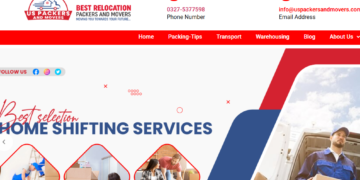8 Methods of Economical Office Spaces in the UK
In today’s evolving work culture, businesses are rethinking how and where they operate. The idea of owning or leasing expensive traditional office buildings is being replaced by flexible, budget-conscious alternatives. Whether you’re a startup founder in Leeds, a freelancer in Manchester, or an SME owner in London, finding cost-effective office spaces is now more achievable than ever.

Below are eight practical methods to help you reduce expenses while still securing a professional, functional, and modern workspace in the UK.
1. Shared Workspaces (Coworking Offices)
Shared workspaces, also known as coworking spaces, are one of the most popular solutions for businesses looking to cut costs. These environments allow multiple companies or individuals to use the same infrastructure—desks, meeting rooms, internet, and utilities—on a subscription basis.
Coworking hubs in cities like Birmingham, Bristol, and London offer access to office spaces without the overheads of furnishing, maintenance, or long leases. From hot desks to dedicated office pods, there’s flexibility for every budget.
More importantly, shared offices promote networking and collaboration, which can be especially valuable for startups and freelancers.
2. Serviced Offices
Serviced offices are fully managed spaces that include everything from reception staff and high-speed internet to office cleaning and IT support. For small businesses, this means no additional costs for setting up infrastructure or hiring admin staff.
With locations across the UK—from Canary Wharf to Glasgow city centre—serviced office spaces offer fixed monthly costs, helping companies control their budget better. Many providers also allow short-term contracts, ideal for testing markets or managing seasonal workflows.
The predictable expenses and turnkey convenience make serviced offices a strong contender for cost-conscious professionals.
3. Subleasing Office Space
Another economical option is subleasing. This involves renting unused office space from a company with excess capacity. It’s a win-win situation: the primary tenant offsets their lease cost, and the sub-tenant gets access to a fully functional workspace at a lower rate.
Subleased spaces often include furniture, internet, and other utilities—minimising upfront investment. With platforms like Hubble or Gumtree Business, you can explore subleasing options in your desired UK location.
It’s also a flexible choice for growing businesses that don’t want to commit to long-term contracts.
4. Use of Virtual Office Services
A virtual office is an affordable way to gain a professional presence without physical office spaces. You get a prestigious UK business address, mail handling, call answering, and sometimes access to physical meeting rooms—all without renting a desk.
For remote-first businesses or solopreneurs, a virtual office in London or Edinburgh can boost credibility without draining your budget. Providers like IBC and Regus offer flexible virtual office packages tailored to your operational needs.
This solution is ideal for companies looking to project professionalism while staying lean.
5. Hot Desking
Hot desking means using a shared desk space that’s booked on a first-come, first-served basis. You don’t pay for unused desks or extra real estate—only for the time you’re physically present in the workspace.
This system works brilliantly in coworking environments and is especially common in tech hubs across the UK. It promotes flexibility and encourages more efficient use of office spaces.
For companies with hybrid working policies, hot desking reduces rental space requirements without sacrificing team productivity.
6. Flexible Leases in Business Centres
Many business centres across the UK offer flexible leases that cater to short-term and medium-term needs. Instead of committing to a traditional 3–5-year lease, you can negotiate rolling contracts, monthly renewals, or pay-as-you-go agreements.
Such flexibility lets businesses scale their office spaces up or down depending on growth, staff levels, or market demand. Cities like Liverpool, Sheffield, and Cardiff have seen a rise in business centres that cater to this dynamic approach.
It’s an excellent strategy for businesses aiming to stay agile in a changing economic landscape.
7. Utilising Unconventional Locations
Not all office spaces need to be in prime commercial real estate. Think outside the box—former warehouses, industrial units, or even converted homes can be transformed into productive, low-cost work environments.
For instance, businesses in Northern England have been repurposing buildings in underutilised areas to reduce operational expenses. Local councils often offer support or incentives for such redevelopment, making it a smart financial move.
Repurposed spaces can be unique, characterful, and much cheaper than renting conventional offices.
8. Work-from-Home with Occasional Workspace Rental
Remote work is no longer a stopgap—it’s a strategic advantage. With the right digital tools, many businesses can operate entirely remotely while saving on the cost of physical office spaces. This doesn’t mean you must give up face-to-face meetings.
You can rent meeting rooms or conference spaces only when needed, through platforms like Instant Offices, IBC, or The Office Group. This hybrid model—remote work supplemented with periodic physical space—delivers maximum cost efficiency and employee satisfaction.
It’s especially viable for tech startups, consultants, and creative teams that value flexibility.
Final Thoughts: Economical Doesn’t Mean Compromised
Cutting costs on office spaces doesn’t mean compromising on quality or professionalism. It’s about using resources intelligently, making strategic decisions, and aligning your workspace with your actual operational needs.
The UK’s office rental landscape is shifting rapidly. From smart leasing to innovative space-sharing models, businesses now have more options than ever before. Whether you choose a serviced suite in central London or a virtual office in Ilford, your choice should reflect both your brand’s image and your financial goals.
By combining technology, creativity, and adaptability, you can create a productive working environment that supports growth without draining your resources. And as your business evolves, your space can evolve too—without locking you into high-cost, long-term contracts.
To explore sustainable office solutions tailored for modern UK businesses visit https://www.ibc.co.uk/.


















